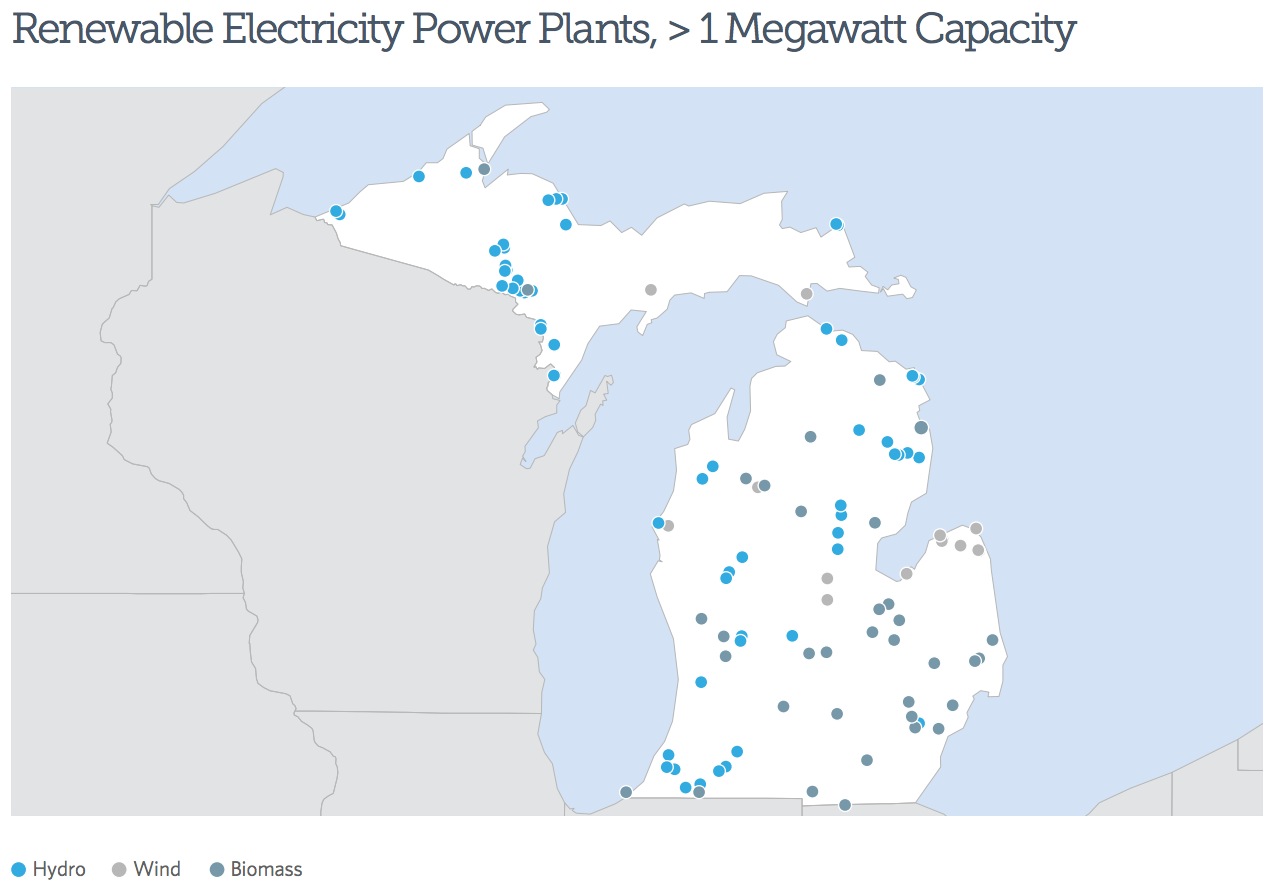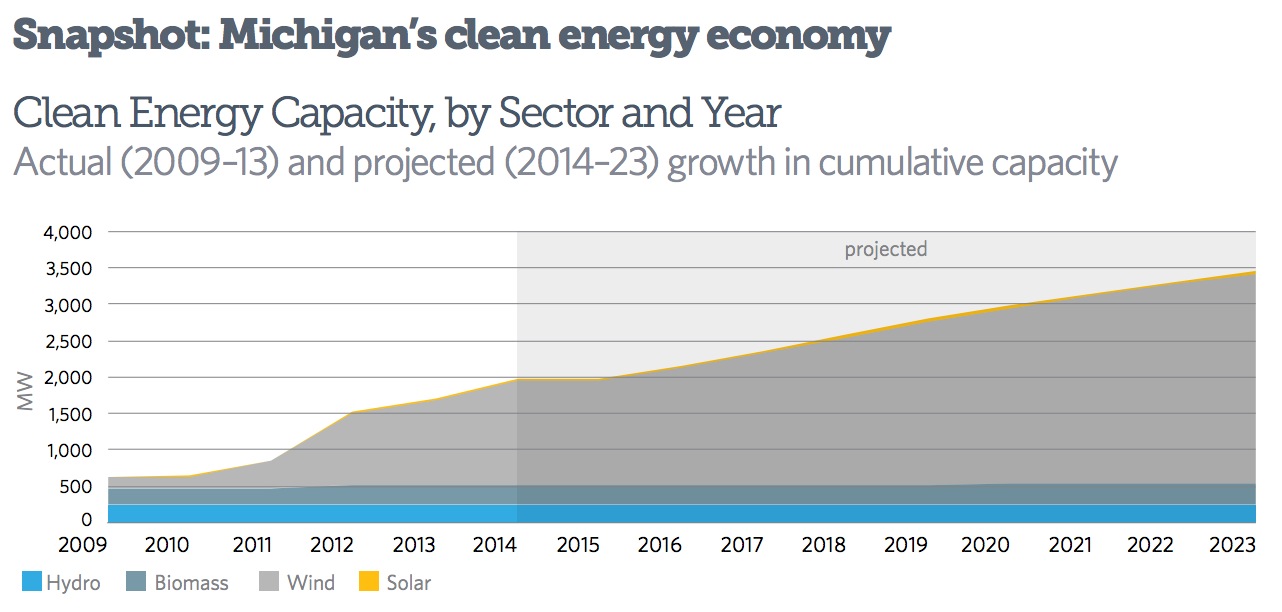THE PEW CHARITABLE TRUSTS
Clean energy policies
Michigan’s 2008 Clean, Renewable, and Efficient Energy Act established a renewable portfolio standard, which
requires electricity providers to generate 10 percent of their sales from renewable resources by 2015.
The
standard also allows electric utilities to use energy efficiency and other advanced energy technologies to fulfill
part of the requirement.
Michigan offers tax incentives for projects in renewable energy renaissance zones, which the 2008 law established to help develop a renewable energy manufacturing industry. The state also offers loan and rebate programs for energy efficiency investments. Additionally, Michigan encourages managers of public buildings, such as museums and government offices, to use energy savings performance contracts, which are agreements between a government agency and a utility or power company to finance energy efficiency.
Sources of power and economic growth
Michigan’s clean energy helps power the state’s economic recovery. Total capital investment in renewable energy
from 2009 to 2013 topped $2 billion and is expected to grow to $3.5 billion by 2015.
From 2009 to 2013, more
than 1 gigawatt of new wind capacity was installed, almost 95 percent of the total clean energy added in those
five years. Most new clean generation came from wind, but solar, methane digester, and other technologies also
grew.
Manufacturing generates economic activity in addition to the revenue from project installations. The annual
economic impact of clean energy manufacturing is currently $4.9 billion in Michigan. Energy efficiency
manufacturing is expected to contribute an additional $2.3 billion annually by 2015.
Michigan employed more than 69,116 workers in clean energy and other environment-related fields in 2011.
From 2003 to 2010, the fastest-growing sectors were fuel cells, energy-efficient lighting, solar photovoltaic,
and electric car battery technologies.
According to a 2011 report, Michigan’s wind turbine supply chain alone
consisted of more than 31 component manufacturers, and the state’s wind industry could yield an average annual
total economic output greater than $460 million by 2015. As a result, $14.5 million in local and state tax revenue
may be realized.
Clean Economy Rising: Wind Powers Michigan’s Energy Industry
About the Pew Charitable Trusts
www.pewtrusts.org
From its first day in 1948, Pew’s founders steeped the new institution with the entrepreneurial and optimistic spirit that characterized their lives. As the country and the world have evolved, we have remained dedicated to our founders’ emphasis on innovation. Today, Pew is a global research and public policy organization, still operated as a non-partisan, non-governmental organization dedicated to serving the public.
Tags: MI, Michigan, Pew Charitable Trusts, Wind Energy








 RSS Feed
RSS Feed